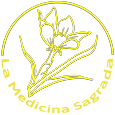
The art of surrender
In this Article I will cover what it means to surrender to a diagnosis. When we have a diagnosis of a serious illness and don’t understand Dr. Hamer’s Five Biological Laws, at that moment we are vulnerable to experiencing a conflict-shock.
Since it was a conflict-shock (DHS) that was responsible for the diagnosis, it is reasonable to think that because we just had another shock, we may be diagnosed with something else down the line. When this diagnosis involves what traditional medicine calls a cancer, what is diagnosed down the line is considered to be a metastatic process. However our reaction may not immediately involve another cancer, it could instead involve a condition that “compromises” their chances of recovering.
80% of our diagnosed diseases are already in the resolution
If you understand the GNM, then you also know that almost 80% of our diagnosed diseases are already in the resolution or healing phase of a conflict. By healing phase we mean a “repair” of tissue damaged during the conflict activity is in progress. This is a crucial time in the biological process we call disease because if it is compromised by another conflict shock, then it becomes more difficult to deal with.
The most common reaction on a serious diagnosis is to go directly into survival mode which will immediately affect the kidney collecting tubules. When the kidney collecting tubules are affected, we begin to retain fluid and it is this systemic fluid retention that makes any healing process more difficult. As a matter of fact, if both kidneys are affected, we can go into kidney failure.
The “kidney collecting tubule syndrome” is the most challenging to overcome
I found over the years that the “kidney collecting tubule syndrome” as Dr. Hamer calls it, is the most challenging to overcome because of our previous “brainwashing” and misinformation with respect to the behaviour of all serious illnesses.
How does one rectify this? I found from experience that the most effective way is to first make sure we fully understand this biological process within the context of the law of two phases and how it has applied to us personally and then begin to practice the art of surrendering.
To surrender doesn’t mean “do nothing”
To surrender doesn’t mean “do nothing” as a lot of other web sites declare is the thing to do in the GNM. What I mean is that we must understand and allow the process to run without it being further compromised by fear induced survival mode.
In practically every biological process that we call disease, Dr. Hamer has made special mention in his “Scientific Chart” how this “Syndrome” can compromise all healing processes.
For example, in the case of a simple arthritic condition we are looking at severe swelling and inflammation when a person is in conflict affecting the kidney collecting tubules. All “simple” healing or repair phases will be more painful and prolonged when we have this “syndrome”.
In a serious process, like an ascites, or pleural effusion, we are looking at severe, life threatening fluid retention in one of those cavities.
“fight disease” or succumb to it
Most people have difficulty in surrendering because we have been programmed from childhood on, that we must “fight disease” or succumb to it. That is entirely wrong especially within the framework of healing phase conditions. Some people interpret surrender as the same as giving up and then dying as a result.
When I hear someone say this, I give the example of two opposing armies going into battle.
Imagine hand to hand combat being fought on land. It is literally a fight to the death. One man against the other trying to survive. In the end, practically no one is left alive on the losing side with the exception of those that held up their white flag and surrendered. They survived, literally by NOT fighting. This is what we must learn to do when we have a so called “life threatening” diagnosis.
To surrender is to survive, and if we continue to fight, we compromise our ability to overcome serious conditions.
